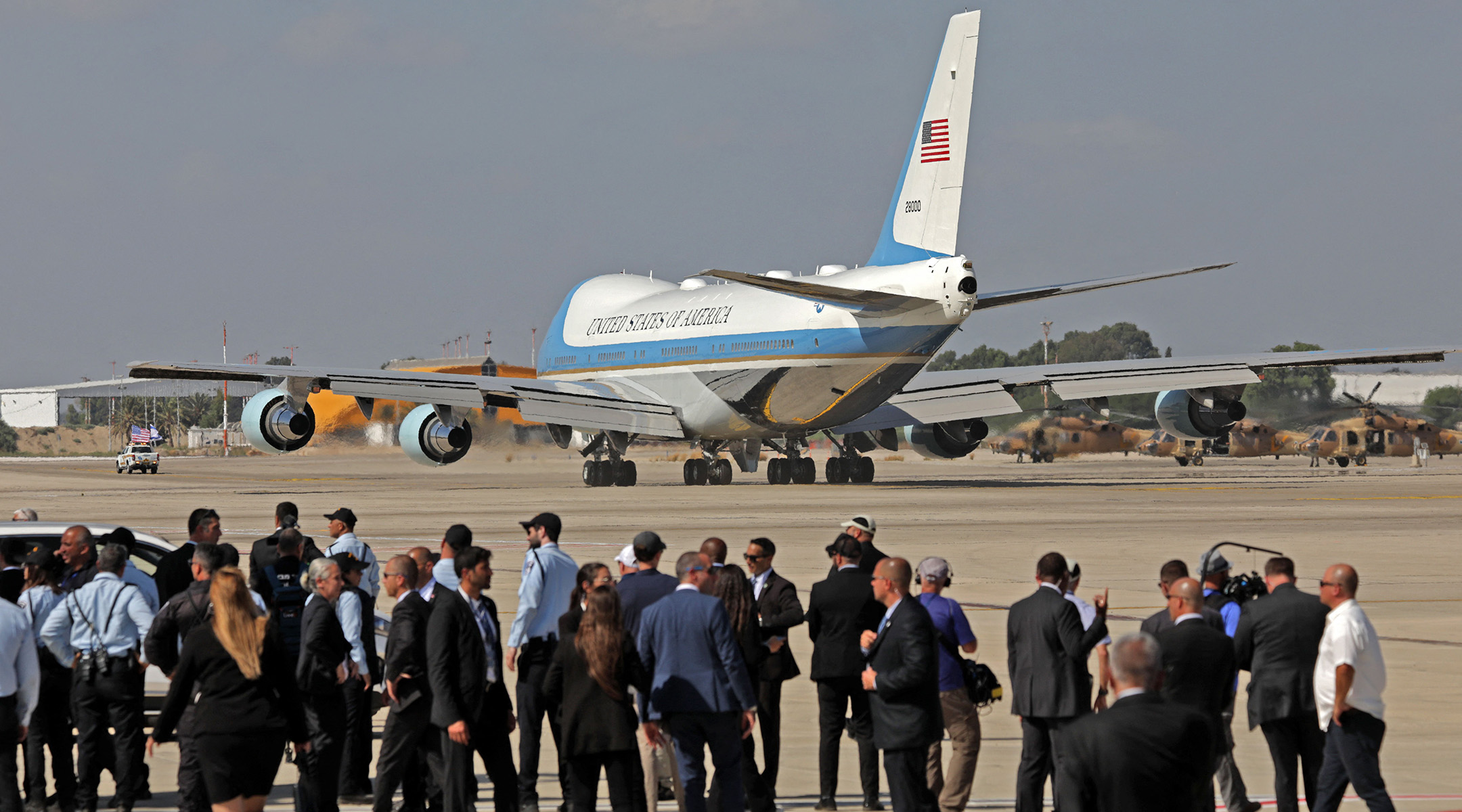Saudi Arabia opens airspace to Israeli flights
The move saves time for flights to Asia but also points to warming relations between the two countries

The U.S. president’s aircraft Air Force One prepares for takeoff from Israel’s Ben Gurion Airport, July 15, 2022. (Abir Sultan/Pool/AFP via Getty Images)
(JTA) — Saudi Arabia fully opened its airspace to Israeli flights for the first time, the latest sign of the two countries’ warming relations.
The country’s civil aviation authority announced the change on Friday, as President Joe Biden flew into Jeddah, Saudi Arabia, for a conference of Gulf states.
Until now, Israeli flights to and from Asia had to detour around Saudi Arabian airspace. The move saves flyers hours of time and symbolizes a steadily growing cooperation between Israel and Saudi Arabia on logistical and security issues.
In the leadup to his first presidential trip to Israel this week, Biden pushed for increased diplomacy between Saudi Arabia and Israel, which has opened up since 2020, the year of the first Abraham Accords signings. Saudi Arabia has so far avoided formally signing onto the treaty, which has normalized relations between Israel and several of its Arab neighbors.
“I will also be the first president to fly from Israel to Jiddah, Saudi Arabia,” Biden wrote in a Washington Post op-ed ahead of his trip. “That travel will also be a small symbol of the budding relations and steps toward normalization between Israel and the Arab world, which my administration is working to deepen and expand.”
Biden, echoing the views of a growing group of American lawmakers, is also a supporter of a defense alliance between Israel, Saudi Arabia and several other Arab nations meant to counter Iran’s aggression in the region. Biden is expected to discuss that prospect in Jeddah on Saturday.
“This decision is the result of the President’s persistent and principled diplomacy with Saudi Arabia over many months, culminating in his visit today,” U.S. National Security Adviser Jake Sullivan said in a statement on Friday about the opened airspace.
This article originally appeared on JTA.org.
A message from our Publisher & CEO Rachel Fishman Feddersen

I hope you appreciated this article. Before you go, I’d like to ask you to please support the Forward’s award-winning, nonprofit journalism so that we can be prepared for whatever news 2025 brings.
At a time when other newsrooms are closing or cutting back, the Forward has removed its paywall and invested additional resources to report on the ground from Israel and around the U.S. on the impact of the war, rising antisemitism and polarized discourse.
Readers like you make it all possible. Support our work by becoming a Forward Member and connect with our journalism and your community.
— Rachel Fishman Feddersen, Publisher and CEO

























